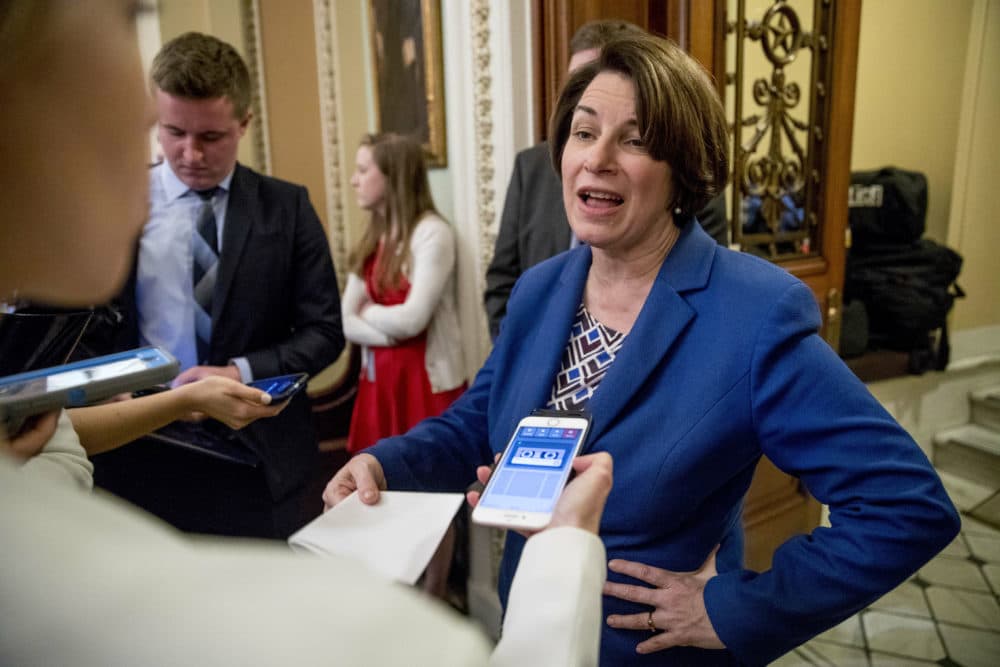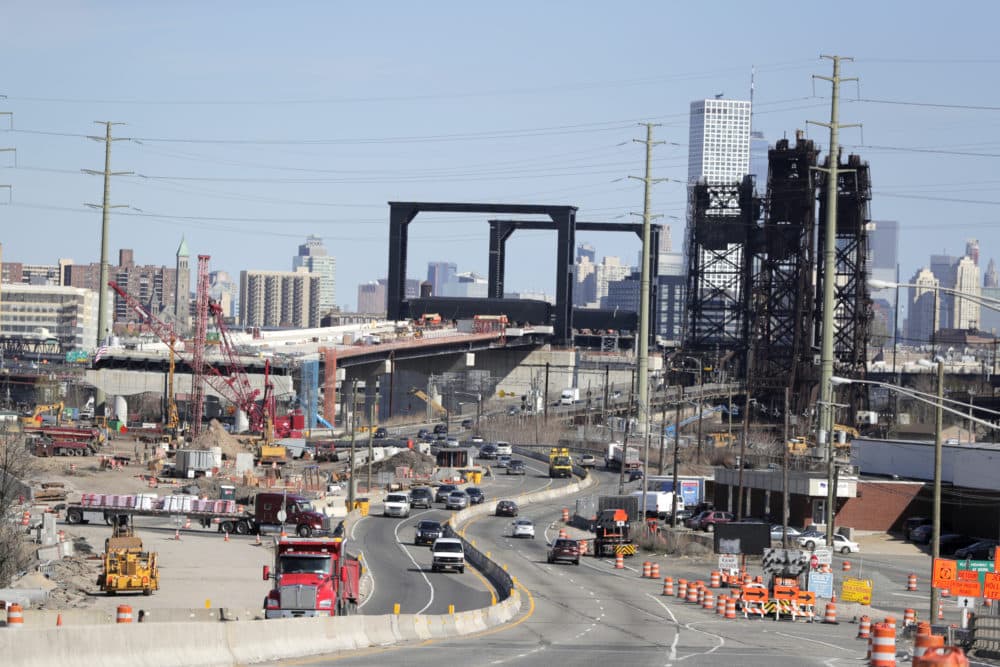Advertisement
Commentary
Politicians Like To Talk About Infrastructure, But Klobuchar Is The Only 2020 Candidate With A Real Plan

If non-Minnesotans know anything about Amy Klobuchar, it’s probably her reputation as a human Vesuvius. The senior senator from the Land of 10,000 Lakes notoriously blows her top at aides; she had the highest staff turnover rate in the Senate last year.
But there’s one other thing you should know about Klobuchar: She has an idea that could save you money, shorten your commute, help fight climate change, create well-paying jobs and redeem one of Donald Trump's broken promises.
The Democratic presidential candidate has made spending $1 trillion on public works the off-the-blocks proposal of her campaign. It doesn’t have the sex appeal of Medicare for All, the New Green Deal or other talking points that goose squeals of delight from progressive crowds. Fixing our decrepit roads, bridges, power grid and water systems? Stolidly dull to many.

But unlike those flashier plans, this one’s eminently doable. Indeed, unlike Trump, Klobuchar has the details filled in, which means she can be believed when she marks this as her top budget priority should she win the White House. Her temperament is a legitimate concern in a potential president; her infrastructure plan is a legitimate credit to her qualifications.
The first 2020 candidate to front-burner this issue, Klobuchar’s proposed spending would be a little more than one-fourth the total needed through 2025 to maintain and adequately improve the nation’s metal-and-concrete skeleton, according to the American Society of Civil Engineers (ASCE). The senator would have Uncle Sam cover $650 billion of the cost, three-and-a-half times what Trump promised last year in his “plan” (more like squiggles on a napkin, as it skimped on dollars and details).
Klobuchar would pay for it by borrowing the funds and a new federal infrastructure bank. She’d also raise the corporate tax rate to 25 percent and impose new fees on big banks and firms that ship jobs overseas. You can quibble with this revenue-raiser or that, but you can’t accuse her of ducking the hard decisions about paying for her program.
If you think that only a democratic socialist could love such a costly plan, you’d have to explain why Ronald Reagan’s chief economic adviser and the U.S. Chamber of Commerce have endorsed ambitious public works spending in recent years. (And why the Chamber is happy to stomach a gas tax hike to help pay for it.)
Advertisement
You can quibble with this revenue-raiser or that, but you can’t accuse her of ducking the hard decisions about paying for her program.
These conservative pillars are spurred by the shoddy shape of our infrastructure (graded D+ by the ASCE) and the harm done to Americans by that neglect, starting with public safety. Klobuchar has wisdom gained from sorrow: she worked on securing funding to rebuild a Minneapolis interstate bridge that collapsed in 2007, killing 13 people.
Meanwhile, subpar water-quality systems threaten 21 million Americans.
Less lethal but still stressful are the hellish-and-growing-hellishly-worse commutes afflicting urban motorists nationally, as population growth outruns our roadways’ capacities. The average greater Boston driver was trapped in traffic 60 hours a week in 2017, up two hours from the year before.
Lousy roads tax not only commuters’ patience, but their wallets. A 2015 report said that motoring on crummy roads cost the average urban driver $516 a year in “broken axles, blown tires and battered shock absorbers,” according to one media report.
There may be economic spillover. The American Public Transportation Association forecasts potential sales losses of $340 billion through 2023 due to transportation “delays and disruptions” along rundown transit systems. Businesses need workers, yet one third of Massachusetts voters living within Route 128 say transit woes make them open to moving, a dynamic doubtless playing out in other urban areas.
Klobuchar’s plan includes improved public transit, which not only decreases traffic, but keeps greenhouse-gas emitting cars off the road. For all the grab-bag dubiousness of the Green New Deal, its infrastructure component -- greener mass transit, a power grid for distributing renewable energy, replacing lead pipes and more flood-resistant bridges, among other things — shows what infrastructure upgrades, done right, can do for the environment.
Not to mention for employment. When he proposed a similar upgrade in his 2016 campaign, Bernie Sanders estimated the work would create 13 million jobs.
Klobuchar must figure out how to lure the spotlight onto her plan in a primary field of 20 candidates. With her infrastructure proposal, she has done what we expect of serious, aspiring presidents: presented a thoughtful blueprint on a long-deferred challenge that would make American lives better, in numerous ways, for decades to come.
